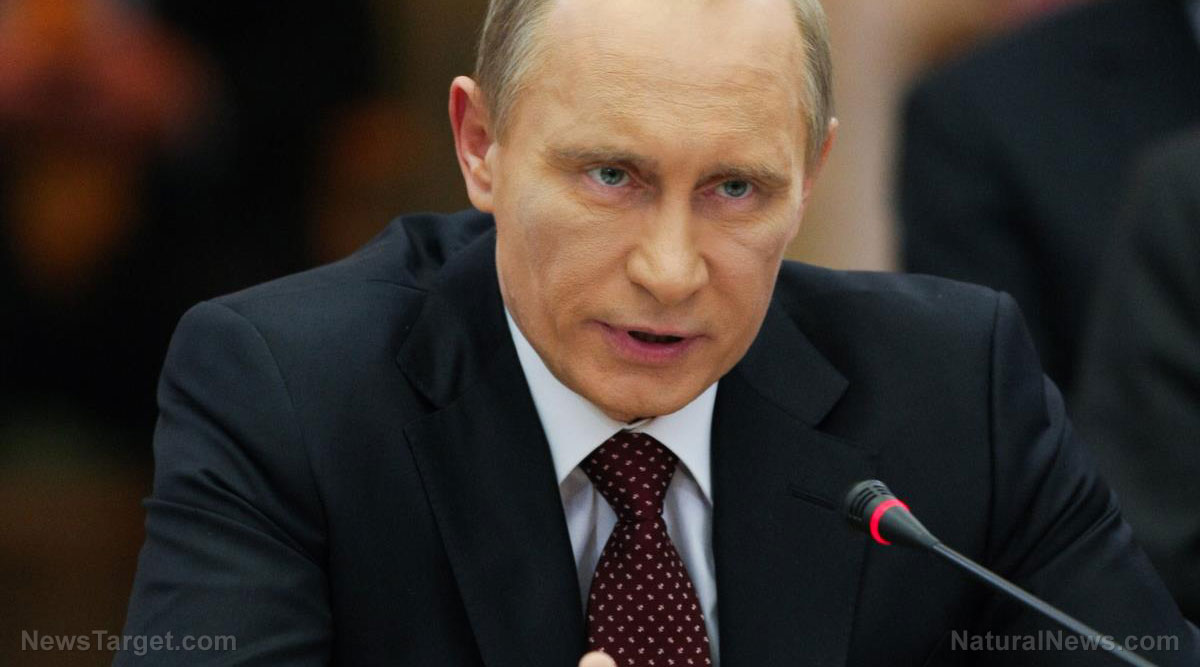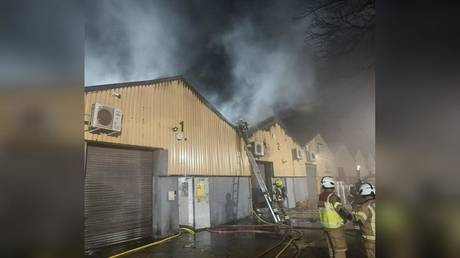Russia probes Ukraine’s possible involvement in concert hall terrorist attack

Russia is currently investigating the possible involvement of Ukraine in the Crocus City concert hall attack.
During a video call with law enforcement officials, Russian President Vladimir Putin attributed the attack to radical Islamists, rejecting assertions from the United States and its allies that Ukraine was not involved and insisting that the Islamic State (ISIS) was responsible.
Despite international narratives, Putin emphasized Russia's resolve to uncover both the perpetrators and those who ordered the attack. Russian law enforcement is diligently pursuing the apprehended individuals, ensuring a thorough and unbiased investigation.
The tragic incident, which resulted in the loss of over 130 lives at a concert venue northwest of Moscow, saw armed assailants opening fire on the crowd and igniting a fire within the hall. The terrorist group ISIS-Khorasan Province (ISIS-K) claimed responsibility for the heinous act.
Following the attack, Russian security services detained seven alleged perpetrators, identified as ethnic Tajiks, who were intercepted while traveling toward Ukraine. (Related: Deadly Moscow terror attack was clearly carried out with the help of Ukraine and the CIA.)
Additionally, four suspected accomplices were apprehended. Putin underscored the significance of the perpetrators' intended destination, raising questions about potential connections within Ukraine.
While the U.S. and the European Union promptly dismissed any Ukrainian involvement, attributing the attack solely to ISIS, Putin stressed the importance of conducting a thorough investigation. He highlighted the need to uncover any potential links between the attackers and individuals awaiting them in Ukraine, suggesting a deeper layer to the situation.
Human knowledge is under attack! Governments and powerful corporations are using censorship to wipe out humanity's knowledge base about nutrition, herbs, self-reliance, natural immunity, food production, preparedness and much more. We are preserving human knowledge using AI technology while building the infrastructure of human freedom. Learn about our free, non-commercial AI / LLM project here. Support our efforts to build the infrastructure of human freedom by shopping at HealthRangerStore.com, featuring lab-tested, certified organic, non-GMO foods and nutritional solutions.
In his remarks during the meeting with government officials, Putin not only reiterated the involvement of radical Islamists in the attack but also underscored the urgency of uncovering those behind the orchestration of the atrocity. His statements hinted at a broader geopolitical context, suggesting a possible link to Ukraine and implying a pattern of intimidation tactics aimed at Russia.
Putin's reference to the "neo-Nazi Kyiv regime" and the insinuation that the attack could be part of a series of hostile actions dating back to 2014 shed light on the underlying tensions between Russia and Ukraine.
This narrative aligns with Russia's longstanding accusations of Ukrainian involvement in various destabilizing activities within the region.
Putin casts doubt on the "official narrative" floated by the West
Despite ISIS-K claiming responsibility for the attack, Putin chose not to explicitly mention their involvement, leaving room for speculation regarding the true instigators. This omission could be seen as a deliberate attempt to cast doubt on the official narrative and maintain a broader geopolitical narrative that serves Russian interests.
The skepticism expressed by Putin toward U.S. assertions of Ukrainian innocence, coupled with his repeated questioning of who awaited the attackers in Ukraine, further fuels suspicions of potential collaboration or support networks operating within the country. This narrative fits into Russia's broader strategy of portraying Ukraine as a destabilizing force in the region.
Putin's remarks also reflect Russia's reluctance to accept assistance from Western intelligence agencies, highlighting the country's preference for conducting its investigations autonomously.
This stance underscores Russia's desire to maintain control over the narrative surrounding the attack and to avoid potential interference from external actors.
In contrast to Putin's assertions, both the U.S. and French intelligence agencies have provided evidence indicating ISIS involvement in the attack.
This discrepancy in narratives underscores the ongoing geopolitical tensions between Russia and Western nations and highlights the challenges of navigating competing narratives in an increasingly polarized global landscape.
Putin blames the West for the terror attack. Watch this video.
This video is from the High Hopes channel on Brighteon.com.
More related stories:
Russian media group head insists ISIS was not behind attack on Moscow concert hall.
ISIS gearing up for blood-soaked comeback amid Gaza conflict.
Sources include:



